The HumAngle Foundation’s workshop on Advancing Peace and Security Through Journalism has reached its third and final day, marking the culmination of an impactful three-day training programme. The Foundation, a sister-organisation of HumAngle Media, is working to address issues around conflict and peacebuilding through advocacy.
Throughout the workshop, participants engaged in various sessions designed to enhance their skills and broaden their perspectives. Among the highlights were trainings on technology and innovative approaches to not only promote peacebuilding, accountability, and risk mitigation, but also promote good governance.
Since the commencement of the workshop on Wednesday, 23 April, topics like conflict and trauma-sensitive reporting, ethical reporting on sensitive issues, accountability journalism for peacebuilding, and stress management were covered.
Other sessions included human-centred storytelling, investigative reporting, and newsroom sustainability techniques.
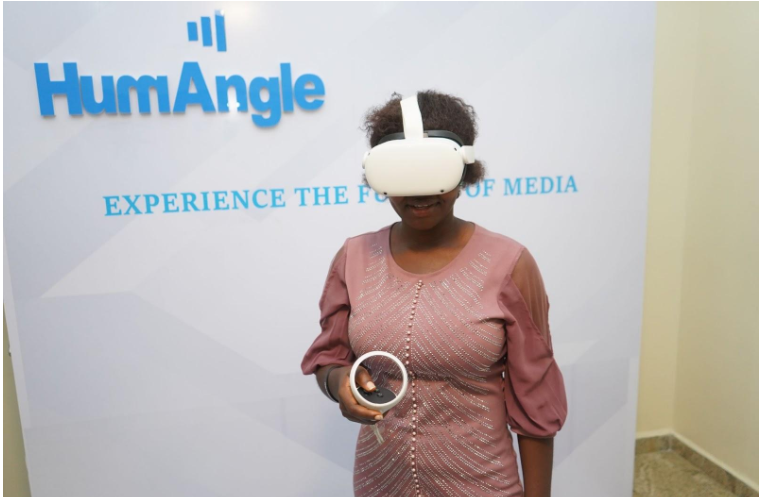
In the course of the final sessions, participants were taught how to utilise audience engagement strategies for impact, which emphasised the importance of connecting with diverse communities to foster understanding and drive meaningful change.
Shade Mary-Ann Olaoye, HumAngle’s Audience Engagement Editor, who facilitated one of the sessions, underscored the transformative power of audience engagement in driving social impact and fostering peacebuilding.
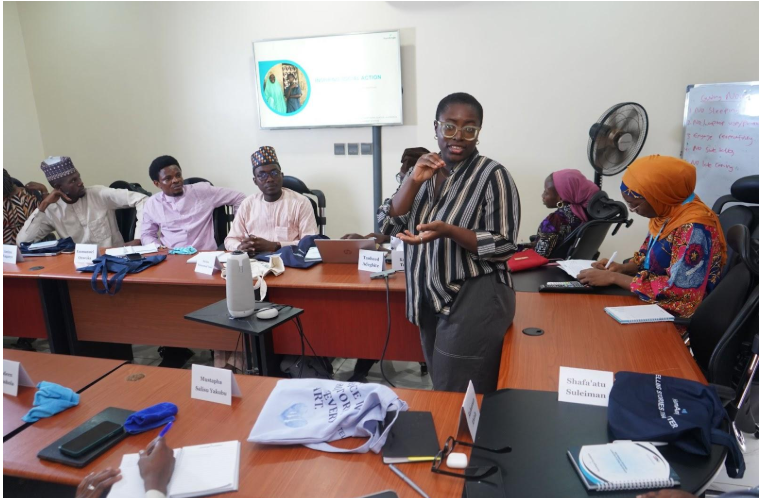
She emphasized that journalists must not only report stories but also actively engage with their audiences to inspire action and create a ripple effect of positive change. “When we connect with our audience on a deeper level, we can amplify voices that matter and catalyze solutions to pressing issues,” the editor remarked.
Adding to the depth of the workshop, Zainab Bala, the team lead for The Scoop Storytelling Initiative, shared insights on inclusive writing for peacebuilding. She highlighted the importance of amplifying diverse voices and ensuring that marginalised communities are represented in storytelling.
“Inclusive writing is not just about telling stories; it’s about creating narratives that bridge divides and foster understanding,” Bala stated.
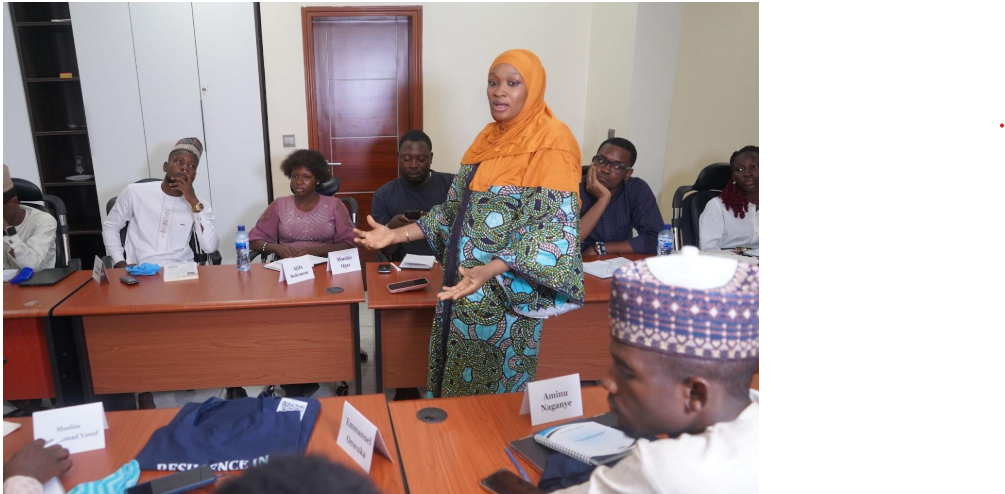
Her session inspired participants to adopt a more empathetic and inclusive approach in their reporting, emphasising that such practices are crucial for sustainable peacebuilding.
Experts at the workshop also highlighted the importance of interactive storytelling as a tool for fostering engagement and driving change. They emphasised that interactive storytelling allows audiences to actively participate in narratives, making them more invested in the outcomes.
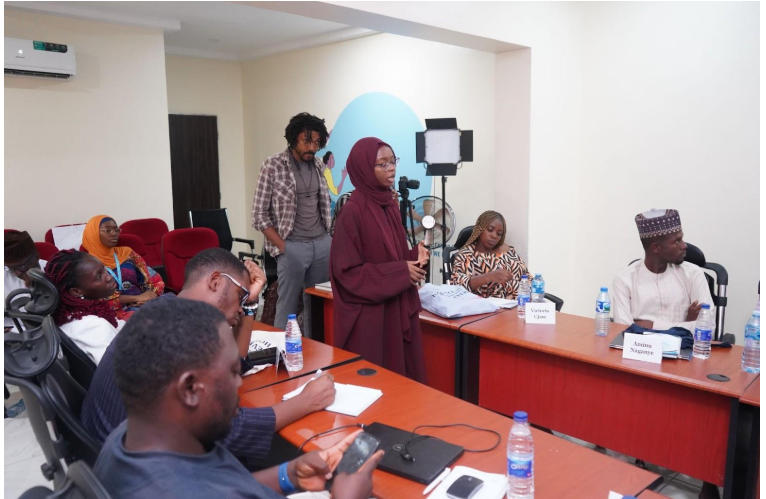
They revealed that interactive storytelling is not just about presenting facts but creating an experience that resonates with the audience and motivates them to take action.
Feedback from participants has been overwhelmingly positive as they expressed gratitude for the opportunity to not only learn from seasoned professionals but also network with peers from different regions for the purpose of peacebuilding.
Opeyemi Lawal, one participant from the Foundation of Investigative Journalism (FIJ), noted, “This workshop has equipped me with the tools I need. The sessions will increase my ability to report on sensitive issues and contribute to peacebuilding efforts.”
Also, Nurudeen Akeshuola, another participant from the International Centre for Investigative Reporting (ICIR), noted that the workshop has not only exposed him to innovative ways to tell better peacebuilding stories but has also given him a better understanding of the safety to embrace when covering conflict-affected communities.
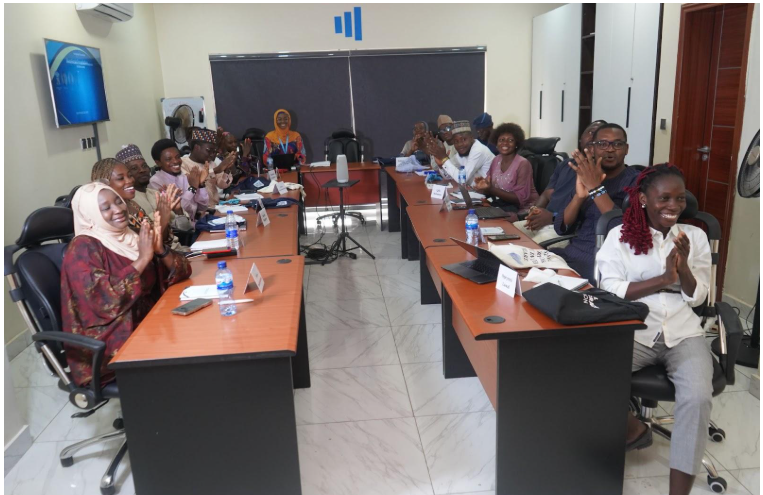
Regarding conducting a step-down training in their respective newsrooms, Rahman Abiola, the Editor-in-Chief of Legit, said he will not only ensure the efficient transfer of the knowledge gathered to his team but also see to its proper implementation in their newsroom. “Doing so will help us increase and refine our reporting on human-interest issues while advancing peace and security.”
The HumAngle Foundation’s Director, Angela Umoru-David, emphasised the importance of empowering journalists to advance peace and security through their work by ensuring increased coverage in these areas leads to stability and resilience in affected communities.
As the workshop concludes, participants are expected to apply the techniques learnt in their reporting and share their insights within their respective newsrooms through step-down sessions, with hopes that this initiative will inspire a new wave of journalism dedicated to promoting peace and security in Nigeria.
The workshop, supported by the National Endowment for Democracy (NED), brought together 15 journalists from across Nigeria to explore innovative approaches to conflict-sensitive reporting and peacebuilding.
The HumAngle Foundation recently concluded a three-day workshop aimed at advancing peace and security through journalism, with sessions focusing on technology, innovative approaches to peacebuilding, and ethical reporting.
The event covered essential topics like conflict-sensitive reporting, stress management, and human-centered storytelling, engaging 15 journalists from across Nigeria.
Shade Mary-Ann Olaoye stressed the impact of audience engagement, while Zainab Bala highlighted inclusive writing to represent marginalized voices.
The workshop, supported by the National Endowment for Democracy, emphasized the importance of interactive storytelling, and participants expressed gratitude for the skills acquired to contribute effectively to peacebuilding efforts.
